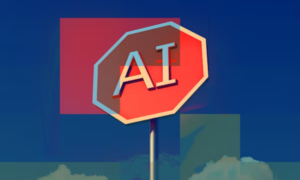The software engineering landscape is fiercely competitive. Companies are constantly on the lookout for exceptional talent to fuel innovation and drive growth. In this high-stakes environment, recruiting software engineers has become a complex challenge. Enter AI-powered recruiting tools, promising to revolutionize the process.
These tools leverage artificial intelligence algorithms to automate tasks like resume screening, candidate matching, and skills assessment. While AI offers undeniable advantages in efficiency and data-driven decision making, its impact on identifying top software engineering talent is a double-edged sword.
Benefits of AI in Recruiting Software Engineers
- Streamlining the Hiring Funnel:
Manual review of hundreds of resumes can be a time-consuming task. AI tools can scan resumes for keywords, skills, and experience mentioned in the job description. This allows recruiters to quickly shortlist candidates who meet the basic criteria, freeing up their time for more in-depth evaluations. - Reducing Bias:
Human bias, both conscious and unconscious, can creep into the recruitment process. AI algorithms, however, are designed to be objective. They evaluate candidates based on pre-defined criteria, mitigating the influence of factors like resume format, school name, or gender. - Identifying Hidden Gems:
AI can go beyond traditional keywords and delve into a candidate’s online presence. Analysing code contributions to open-source projects, participation in coding challenges, or activity on developer forums can reveal hidden talent with the right skillset and passion. - Predictive Hiring: Advanced AI tools can analyze past hiring data to identify patterns associated with successful software engineer hires. This allows them to predict which candidates are likely to be high performers, even with unconventional backgrounds.
- Personalized Candidate Experience: AI-powered chatbots can engage with applicants, answer initial questions, and schedule interviews. This creates a smoother experience for candidates, fostering a positive employer brand.
Challenges of AI in Recruiting Software Engineers
Despite the promising benefits, AI in recruiting is not without its challenges. Here are some key areas to consider:
- Algorithmic Bias:
AI algorithms are trained on existing data sets, which can perpetuate existing biases in the tech industry. For example, an AI trained on resumes from companies with a history of gender bias may continue to favor male candidates. Mitigating algorithmic bias requires careful selection of training data sets and ongoing monitoring of the AI’s decision-making. - Skills Gap Identification:
AI might struggle to identify the nuances of software engineering skills needed for specific projects. Complex problem-solving abilities, adaptability, and strong communication skills are crucial but may not be readily apparent in a resume or social media profile. Human expertise remains essential for evaluating these aspects. - Over-reliance on Automation:
While AI can streamline tasks, relying solely on automation can lead to overlooking strong candidates who may not have a perfect resume match. Human judgment plays a vital role in recognizing potential and assessing a candidate’s cultural fit. - Ethical Considerations:
The use of AI in recruiting raises ethical concerns around data privacy and candidate control. Transparency about how data is collected, used, and stored is crucial to build trust with applicants.
The Future of AI in Recruiting Software Engineers: A Human-AI Partnership
AI-powered recruiting tools are evolving rapidly, offering new functionalities and improved accuracy. However, achieving optimal results requires a strategic approach that leverages the strengths of both AI and human expertise.
Here are some key considerations for the future:
- Focus on Explainable AI: Implementing AI that clearly explains its reasoning behind candidate selection builds trust and allows for human intervention when necessary.
- Continuous Learning and Improvement: AI models need to be continuously updated with new data and feedback to avoid bias and adapt to the changing software engineering landscape.
- Human-in-the-Loop Approach: The most effective approach combines AI’s efficiency with human intuition and judgment. Recruiters should focus on tasks where their skills truly shine, like in-depth interviews and assessing cultural fit.
By fostering a human-AI partnership, recruiting software engineers can become a more efficient, fair, and effective process, ultimately leading to the identification and acquisition of top talent that drives innovation and success.
Beyond the Hype: Practical Tips for Using AI in Recruiting Software Engineers
Here are some practical tips to maximize the effectiveness of AI-powered recruiting tools and identify top software engineering talent:
- Clearly Define Requirements: Before implementing any AI tool, clearly define the specific skills and experience required for the software engineering role. This helps in training the AI and ensures it focuses on relevant criteria.
- Skill Assessments: Supplement AI screening with skills assessments tailored to the role. These could be coding challenges, technical interviews, or white paper evaluations. This helps gauge a candidate’s practical abilities beyond resume keywords.
- Diverse Interview Panels: Even with AI-mitigated bias, ensure interview panels are diverse in terms of background and experience. This fosters a more well-rounded evaluation and reduces the risk of unconscious bias creeping in.
- Candidate Feedback: Actively seek feedback from candidates throughout the hiring process. This can help identify areas for improvement in the AI’s screening process and ensure a positive experience for all applicants.
- Focus on Cultural Fit: Software engineering teams thrive on collaboration and communication. Use AI to shortlist candidates with the right skills, but rely on human interaction to assess cultural fit and team dynamics during interviews.
The Road Ahead: Embracing the Future of Talent Acquisition
The use of AI in recruiting software engineers is still evolving. As technology continues to develop, we can expect even more sophisticated tools that can analyze code samples, assess problem-solving approaches, and even evaluate a candidate’s thought process during technical assessments.
However, the human element will remain irreplaceable. Recruiters will play a vital role in building relationships with potential hires, showcasing company culture, and fostering a positive employer brand.
Ultimately, the key to success lies in embracing a human-AI partnership. By leveraging AI’s efficiency and data-driven approach alongside human expertise and judgment, companies can create a robust and effective recruitment strategy that attracts and retains the top software engineering talent needed to thrive in the ever-evolving technological landscape.































